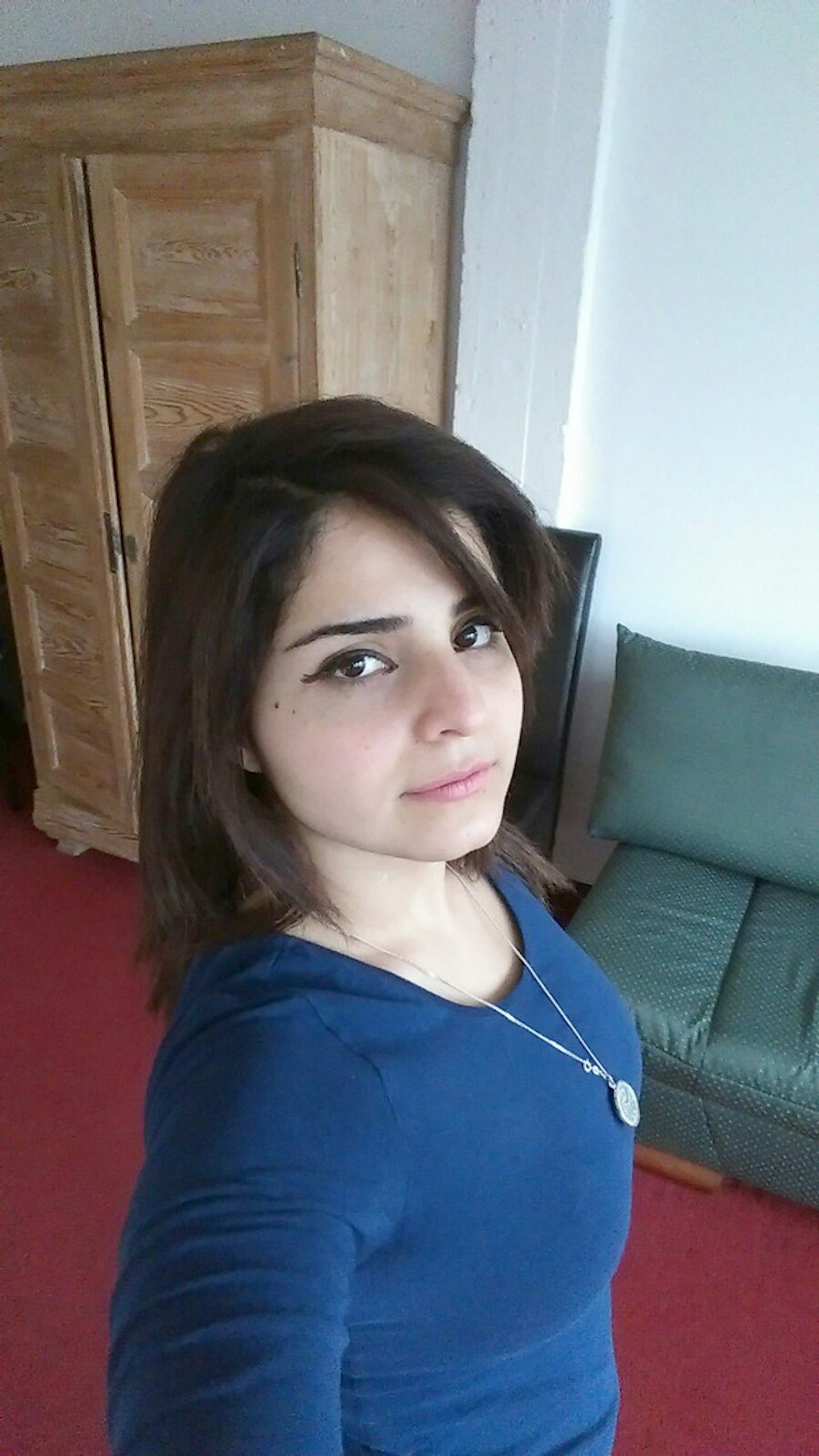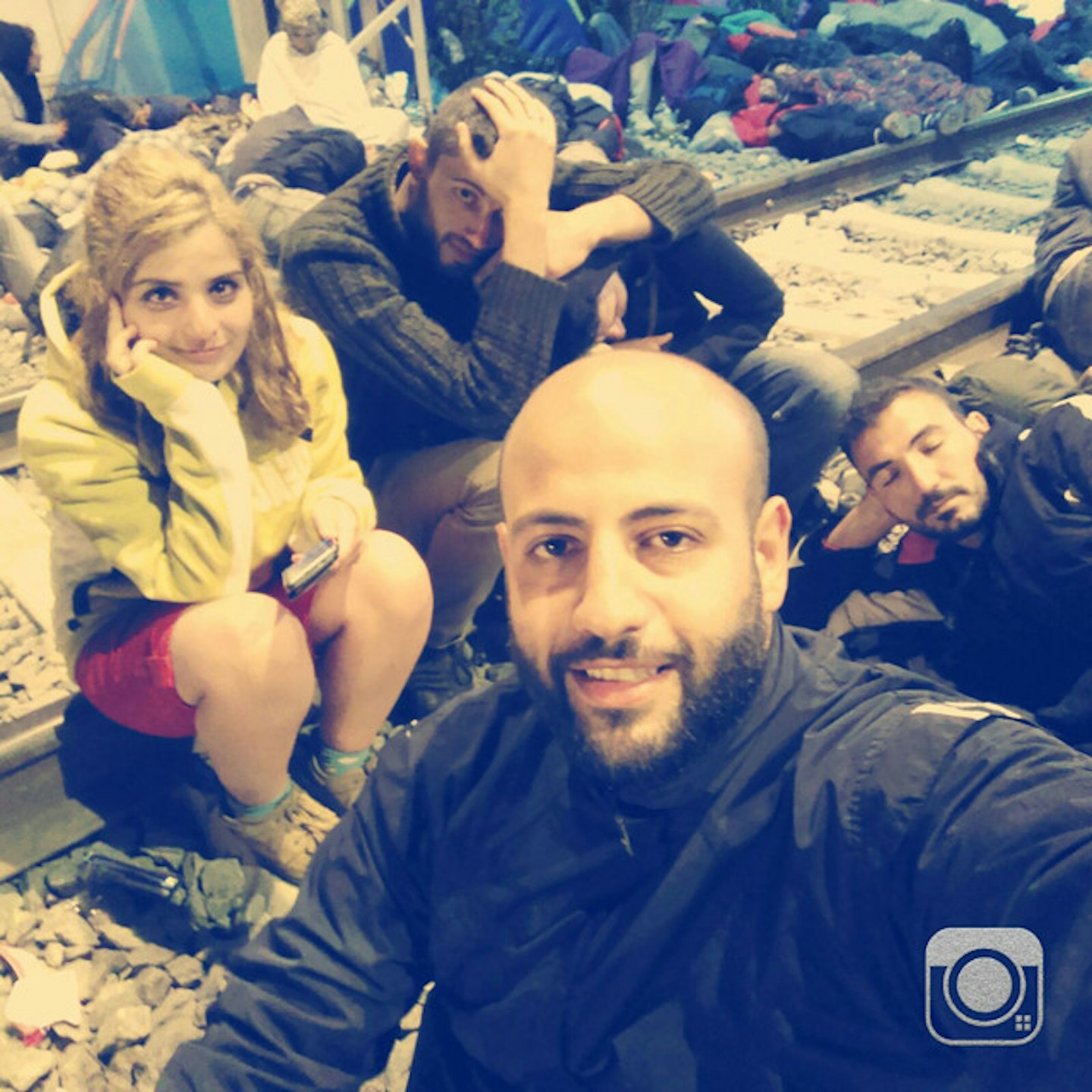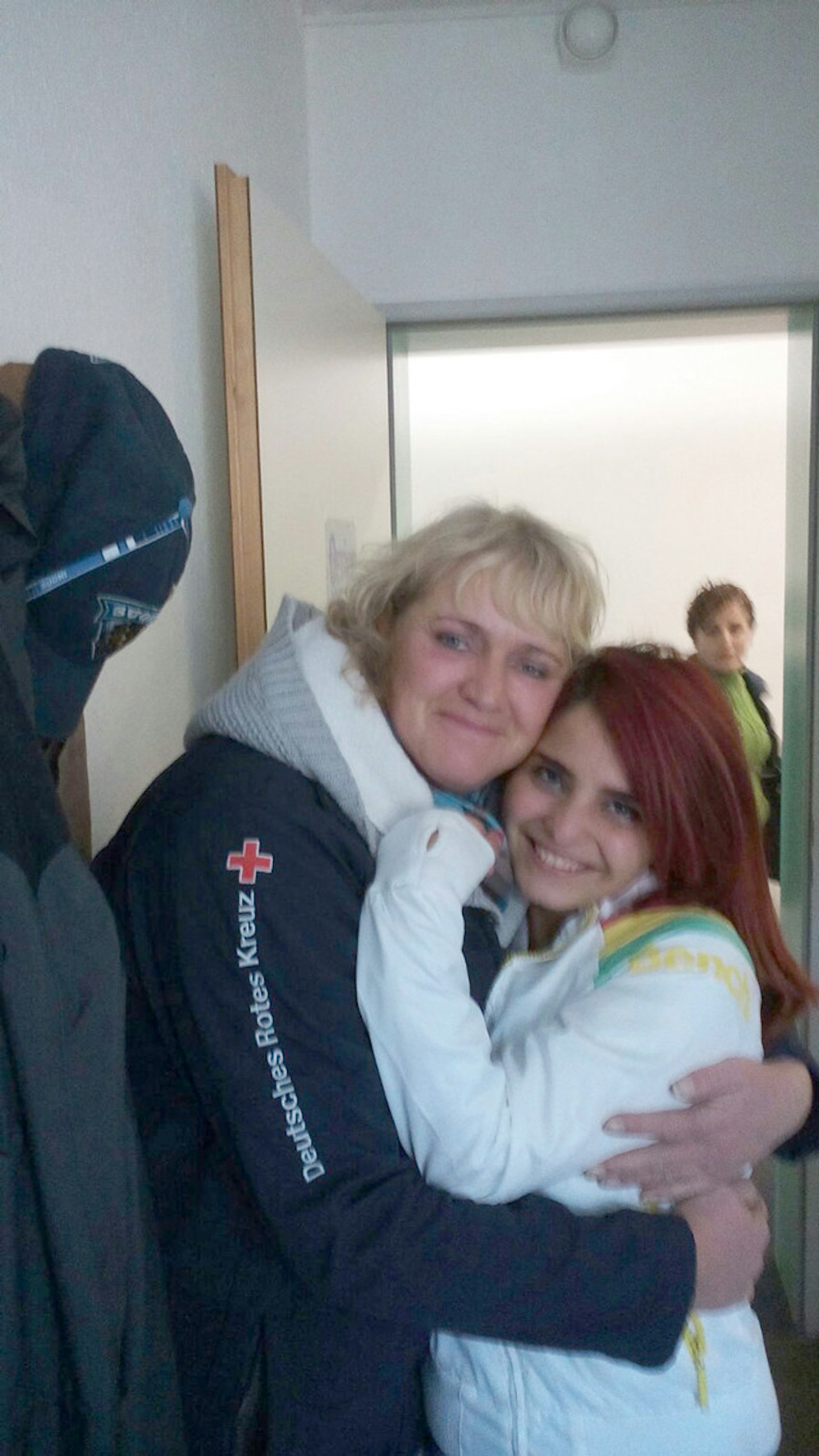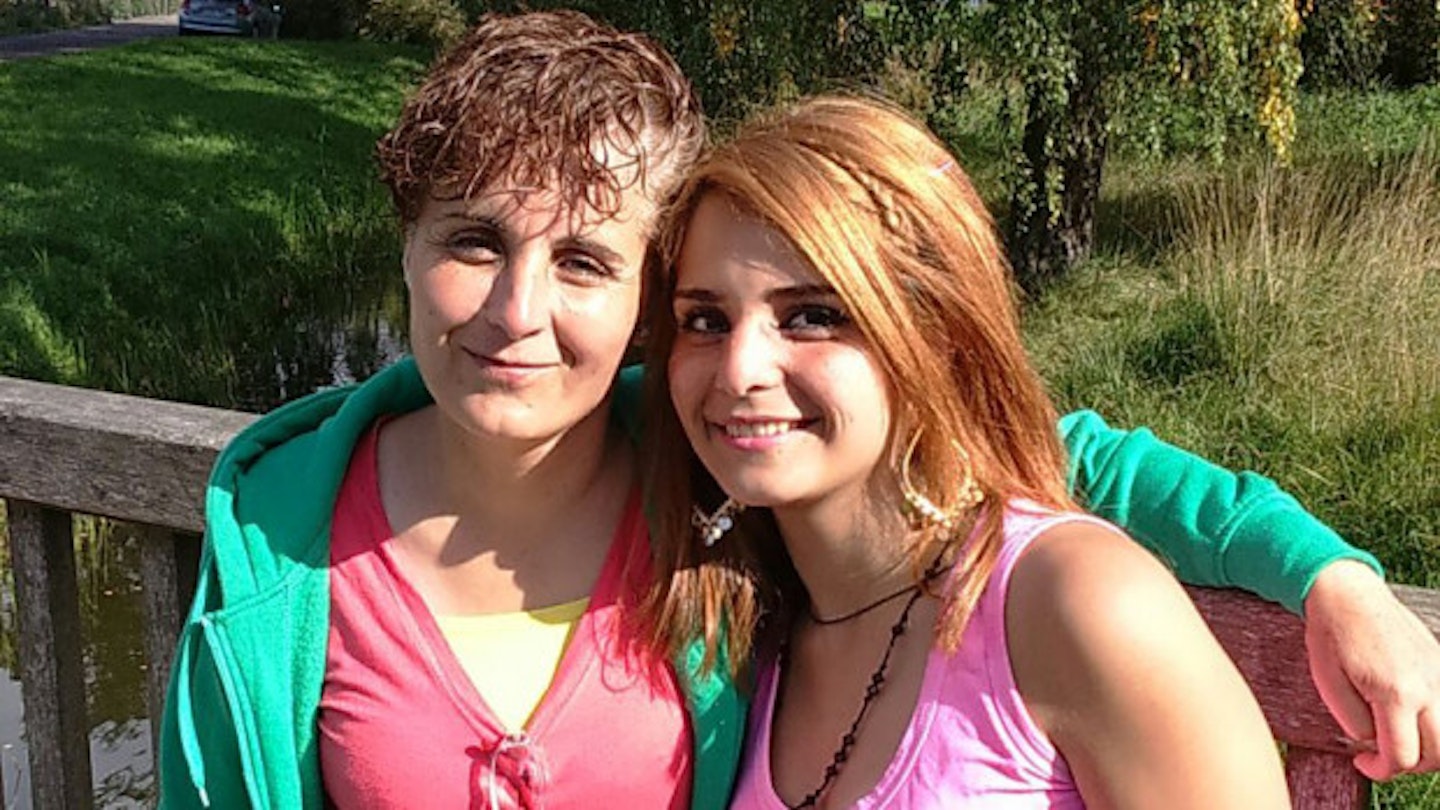‘I will not lie and say I am happy here’ 23 year-old Zahraa Daoud says. ‘We have been here for six months and we are not happy, we didn’t know the language and, if you don’t, you cannot go to school, to university or to work.’
She is currently in Germany, safer than she was in Syria, but in a state of limbo. ‘I was studying English literature at university in Syria but I stopped because of the war. I’m 23, for the last three-and-a-half years this has been my life’, she says. ‘I’m 23. For people my age it’s very difficult. Many of my friends are still in Syria, not all people can leave, some can but it’s difficult because they need the money to come here. It’s not just money for the journey but in the first two months after arriving we used all of our money.’
It’s hard to miss the reporting about the refugee crisis. It’s hard not to encounter a wide ranging mixed bag of views on the subject: whether that’s a slightly xenophobic relative, another News at 10 report, a friend who’s gone to volunteer over in Calais, someone you know currently living in Germany, Donald Trump or a taxi driver with tiny boxing gloves hanging on his mirror, which read ‘Afghanistan’ in small but bold red letters, who tells you that he has lived in Britain for 8 years and he, like Zahraa, can not go back home.

Zahraa and her mother made the journey from Syria to Stralsund, in Germany (where she is now) last September. She is one of more than a million migrants and refugees who crossed into Europe in 2015. Theirs is not the narrative that many headlines would have you believe is the norm; they are not male for one and Zahraa was a student before the civil war put paid to her education, while her mother was a teacher. They had no choice but to leave their home, friends and family, but the decision was not one the took lightly.
‘I left Syria because there is no future there, because of the war. I felt really sad. I have tried to come and to find a better future for me and for my family because there is nothing in Syria now’, she says. ‘I’m looking for a better future, if they will allow us to have it.’
Zahraa is from Salamiyah in Syria, she made the journey to Europe with her mother and some friends. Salamiyah has the largest population of Ismailis in the Middle East. Ismaili Muslims belong to the Shia branch of Islam, ‘we are a minority religion’ she tells me, and one that has been persecuted by Isis who follow a fundamentalist Sunni doctrine. ‘I have a brother who is still in Syria and another who is in Uganda, he went there because of the war in Syria. It’s not a good situation for him’ she says.
The journey to Europe itself is a dangerous odyssey. People die making it, particularly at sea. Zahraa and her mother travelled from Syria to Lebanon and, then, onto Turkey by plane. It was from there, ‘from Turkey to Greece’ that it became ‘difficult’ she says.
‘In Turkey we went in a truck, we were about 100 people in the same truck and after that we went to a small beach. From there we travelled in a small boat to Greece. In Greece we walked for hours, then on to Serbia and Croatia.’ For a while Croatia was ‘the gateway to northern Europe’, but as the numbers rose the country couldn’t cope and many people were left stranded, waiting for trains. Zahraa says she and her mother waited there for two days before a train eventually took them to Austria, where they waited for days again before boarding a train to Germany.
‘It was a difficult journey’ she says, which you can only read as an understatement. ‘But’, she says, ‘it was the first time for a long time that I could laugh’. Why? ‘I was with my mother and my friend, but maybe because I was doing something and I dreamed that I [could] make it.’

Now, in Germany, she is living with her mother but, she says, her friends are dispersed. ‘Some of them [have found] houses and some, like me, are still looking [for a house].’
‘I have some friends but very few my age here. I haven’t really made any friends because I don’t go out as much here.’
Zahraa is living in Straslund now, before that she was in Gustrow. She and her mother are currently staying in a hostel. ‘We live in a place we call ‘a camp’ she says before clarifying that it’s not actually a camp, ‘we don’t live in tents she says’. This is just a nickname for the temporary base that she and her mother currently share, ‘it’s like a hotel, it’s a good place for us – not everyone lives in such a good place, I know.’
‘I like it here’ she says, ‘I was happy in Gustrow but not so much here. They were more responsible for us there. We haven’t found people we can talk to here like [we did] in Gustrow.’
Why does she not go out as much in Straslund? ‘I don’t really know about it here’ she says, ‘I don’t know why. It’s OK when I go out in the day but I don’t know if you can go out at night.’
When Zahraa arrived back in September the emotional landscape of Europe was different, calmer. Tensions are currently running high. In the wake of the attacks on Paris late last year and the attacks on women in Cologne on New Years Eve (which, it now transpires had very little to do with refugees), hostility towards arrivals is high. Just this week, reports have come out of Germans looking on at a fire, at a hotel being converted into a refugee shelter in Bautzen, Saxony. They're all cheering. Police suspect arson, nobody was hurt. And yet, still, people arrive, fleeing a life they once had not out of choice but because they have no other options.
Zahraa's mum goes to a language school every week, to learn German. ‘There are not just Syrians, there are Iraqi people, Asian people and Russian people’ she says, ‘people from all over.’ Zahraa hasn't picked up her studies again yet.
Right now, there’s no going back. That’s clear, but does she think she will ever go back to Syria? ‘If the war ends I will go back but I don’t think I will be able to do this for about ten years, at least. Sometimes, in my head, I think I will never go back. I can’t forget what it was like…’ the voice on the other end of the phone tails off and there’s a long silence. She picks up again, changing the subject, ‘I want to study here. I want to finish my studies. I want to be something different’ she says, ‘I want to make a difference and tell Germans that I appreciate what they did for us, I want to make things better for people.’

As a refugee she's inbetween: effectively inbetween countries, inbetween her studies, inbetween homes, inbetween languages and, in effect, inbetween her past and her future. Her present is all about what happens next.
‘I hope I can find a good job, that I can make something special for me and other people. I want to change my life, I don’t want my children in the future to live like us. I want to prove to German people that we are good people and that we have come here because they still [have] a future.’
Her only other wish is that they will let her other brothers into Germany as well. Her mother was a teacher in Syria, she would like to go back to her career. Zahraa wants to finish her studies but, mostly, she says, she wants to ‘be happy’. She reiterates again, ‘I won’t lie, I can’t lie to you and say I am happy here.’ But, ‘it’s better’ because at home, in Syria, a place torn apart by war, she was not safe.
European countries are struggling to cope with the influx of arrivals and rifts are opening up within the European Union about how best to resettle the hundreds of thousands of displaced people. So far in 2016 alone 110,257 people have reached Europe by sea, according to the UNHCR. The journey itself, as made by Zahraa and her mother, is perilous. So far, this year, 406 people are recorded as dead or missingand according to the IOM more than 3,770 people are reported to have died trying to cross the Mediterranean in last year. People drown when their inflatable dinghies fail,but, still, they set off daily, in hope of something better, in search of a future.
You might also be interested in:
The Reality Of Being A 20-Something Female Refugee In Greece
Follow Vicky on Twitter @Victoria_Spratt
This article originally appeared on The Debrief.
